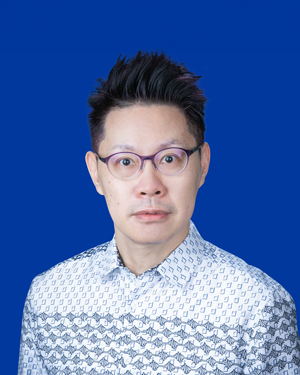
Associate Professor
Research
College of Optometry
Roger W. Li joined NSUCO as an Associate Professor in 2021. He completed clinical education and post-graduate research training, with Profs. Marion Edwards and Brian Brown, at the Hong Kong Polytechnic University School of Optometry (PolyU). Roger pursued his further post-doctoral research at the same institute and then the University of Houston College of Optometry. Prior to joining NSUCO, Roger Li worked at the University of California-Berkeley School of Optometry as a researcher from 2001-2021.
Currently at NSUCO, Roger Li is the Principal Investigator directing the Vision Enhancement Laboratory. As a clinician scientist, Li has a long-standing research interest in clinical vision science - from amblyopia, spatial and pattern vision, myopic control, aging eye, eye movement, visual electrophysiology to retinal and brain imaging.
His research programs have been continuously supported by various extra-mural research funding bodies, such as Research to Prevent Blindness, Health and Medical Research Fund (HMRF, Food and Health Bureau, HK), General Research Fund (University Grants Committee, HK) and National Eye Institute. He has also received intra-mural funding supports from NSU’s President's Faculty Research & Development Grant and Health Professions Division Research Grant, and from PolyU’s General Research Fund.
Li has received a prestigious Walt and Lilly Disney Award for Amblyopia Research from Research to Prevent Blindness in 2022 (RPB, New York). Amblyopia, a.k.a. lazy eye, the most frequent cause of permanent visual loss in children, was generally thought to be not reversible after the critical periods of visual development. Importantly, his research gives new hopes for treating amblyopia.
Over the past two decades, Li and his colleagues have conducted a series of pioneering perceptual learning studies and invented many groundbreaking treatment techniques for restoring vision in patients with amblyopia. His famous video game experiments have received a lot of attention from the mass media. With the support of RPB Disney Award for Amblyopia Research, Li’s research team is currently working towards developing a new stereoscopic treatment for restoring stereo vision in patients with amblyopia using 3D video games.
Li has published in numerous scientific journals - including Nature Neuroscience, PLoS Biology, Ophthalmology, Philosophical Transactions of the Royal Society B: Biological Sciences and Journal of Neuroscience. In 2014-2022, his research team has been awarded altogether 17 competitive travel grants from the American Academy of Optometry and Association for Research in Vision and Ophthalmology for presenting the research findings. His team members have completed a total of 8 honor research theses in the laboratory.
Li has served on the Editorial Boards of six ophthalmology and neuroscience journals - Frontiers in Neuroscience, Frontiers in Psychology, Scientific Reports, etc. He has been involved in handling and reviewing research articles for more than 40 journals. He is also a regular research grant reviewer for several international research funding sponsors - these include Food and Health Bureau (HK), Research Grants Council (HK), Natural Sciences and Engineering Research Council of Canada (Canada), Research into Ageing (UK).
At the University level, Li serves on the University’s Faculty Research Advisory Council as a committee member. At the College level, he works as a faculty research mentor to help develop grant proposals, and he is an ad-hoc thesis committee member for the MS Clinical Vision Science program. Li was invited to be an external PhD examiner to the University of New South Wales School of Optometry and Vision Science in Australia in 2011 and he was also engaged in a HMRF research fellowship scheme with PolyU from 2018 to 2020 (Food and Health Bureau, HK).
The goals of Li’s research programs are to (1) study human visual perception and the underlying processing mechanisms, (2) develop new treatments for amblyopia, (3) advance the understanding of neural plasticity of the visual brain, and (4) translate the knowledge gained into developing clinical techniques for the diagnosis and treatment of ocular/visual disorders.
-----------------------------------------------------------------------
Research Opportunities: NSU Undergraduate Research Opportunities
We have several openings for (1) volunteer undergraduate/graduate research assistants and (2) research students. Pre-optometry and optometry students are encouraged to apply.
If interested, please contact Roger Li (wli@nova.edu).